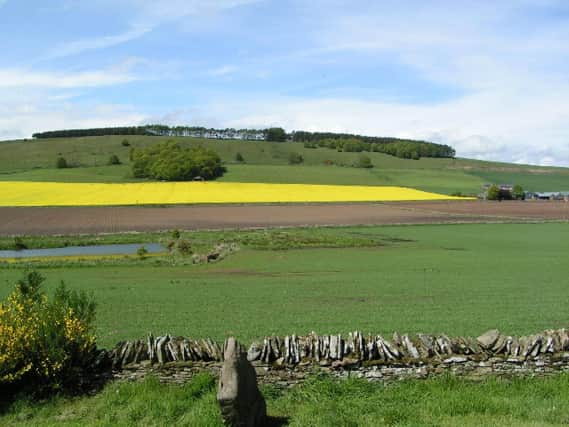On this day 685: The Picts smash the Northumbrians and pave the way for Scotland


The Battle of Dunnichen Hill was fought on this day in 685 with the decisive victory of the Picts releasing them from three decades of Northumbrian dominance.
The killing of King Ecgrith, leader of the Kingdom of Northumbria, is credited with paving the way for the creation of Alba, then to become Scotland.
Advertisement
Hide AdAdvertisement
Hide AdThe Picts under King Bridei were a resurgent force in the lead up to Dunnichen Hill, which has long thought to be near Forfar in Angus but a rival location, Dunachton, near Kingussie in Strathspey is now favoured by some as the scene of the battle.
The clash took place in the face of a rapidly expanding Kingdom of Northumbria under King Oswui, who led the push north of the Northumbrian frontier to the River Tay from around 653.
By 672AD, King Oswui was dead with the Picts rising up agains their overlords and expelling Drust, their Northumbrian puppet King.
In revenge, King Ecgrith, the new leader of the Northumbrians, headed north on a new military campaign. Crossing the River Earn and then the River Tay, he ventured deep into the heart of Bridei’s Kingdom.
Some believe he was on the way to the Pictish fortress at Dunnottar in Stonehaven when the forces met.
According to the Chronicles of Holyrood, King Ecgfrith “rashly led an army to waste the province of the Picts….he was led into the defiles of inaccessible mountains, and annihilated with great part of the forces he brought with him.”
“Heavily outnumbered and caught between high ground and swamp, the Northumbrians were cut to pieces and the mighty king was slain.
“Such was the completeness of the Pictish victory that Bede regarded it as a major turning point in the fortunes of his people,” wrote Tim Clarkson in The Makers of Scotland.
Advertisement
Hide AdAdvertisement
Hide Ad“From that time he wrote mournfully the hopes and strenghts of the English kingdom began to ebb and fall away,” he added.
The political map was altered and the Northumbrian overlordship was never a serious force in what was to become Scotland.
Bridei reigned for a further nine years after Dunnichen, dying peacefully in 694 and reciveing a burial on Iona.
Clarkson wrote: “He was the last of the great warlords of the 7th Century and is widely regarded as one of the prime movers in Scotland’s early history.”
The Picts remained a significant political force, with Alba formed by the union of the Picts and Scots under Kenneth I MacAlpin in 843.
The Battle of Dún Nechtain was fought between a Northumbrian army under
their King, Ecgfrið, against a Pictish army from the Kingdom of Fortriu led by
Bridei mac Beli. The battle ended in a decisive victory for Bridei’s forces with
Ecgfrið along with many of his army slain, freed Fortriu from Northumbrian
overlordship and permanently weakened Northumbria’s power in Northern
Britain